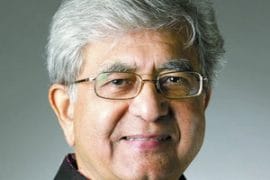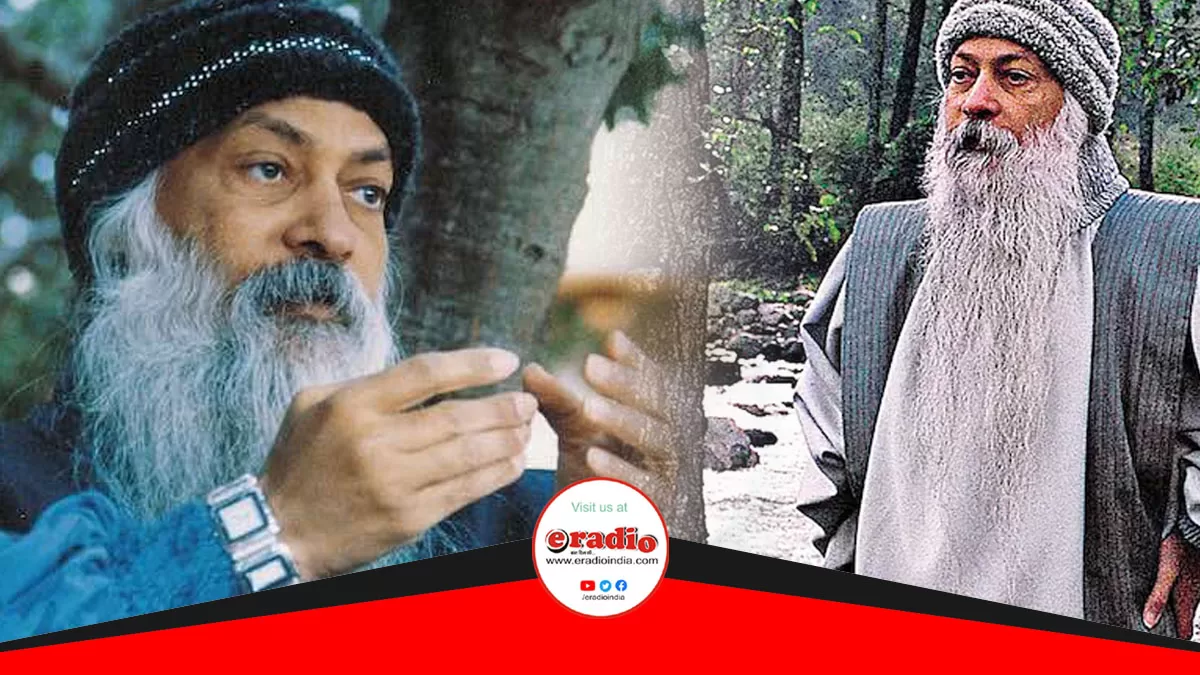- SATYA VEDANT
We are a wounded civilization. The enormously vast expenditure (currently estimated to be over two billion dollars per day in developed countries), loss of life, wastage and misuse of energy as well as of natural resources has been justified in the interest of ‘peace’ and ‘security’. And yet, humanity finds itself more insecure and terrified than at any time in history. As if this were not enough, we watch one billion people around the world living in utter poverty. It is estimated that about a quarter of the world’s citizens are deprived of such fundamental needs as clean water, food, shelter, and sanitation (World Commission on Environment and Development, 1987).

It is critical that our policies and priorities, values and their application equip mankind in learning how to take care of their inner world, stay psychologically and spiritually healthy, and develop a wider perspective for making this world a safe place to live and enjoy.
At the Earth Summit in Rio de Janeiro a great deal of attention was paid to ‘Agenda 21’. But in that agenda, Man was missing. The Summit failed to recognize that for the ecology of human consciousness, the ecology of mind, meditation is the core for a true environmental sustainability.
There was a lack of widespread understanding at the Summit that only a clean and healthy environment within – free from prejudice, greed, violence, ambition and jealousy – can, in effect, create a healthy and sustainable natural environment.
From the very outset, we as humans are set against our own nature – we are at war with ourselves. From that point the rest of the disaster follows. If we cannot love ourselves, we offer our neighbors anything but love. And the current state of war between different factions of humanity the world over evidently testifies how lack of love and compassion can make a disastrous impact on humanity. And, if we cannot love ourselves or our neighbors, what hope do the trees have!
The contemporary mystic, Osho, has this to say:
“But as I see it, the basic problem is somewhere inside man. If you are relaxed inside, if you have come to a settlement with your own nature, then you will be able to understand the natural functioning of the world, and you will not create any problem…. The basic problem is inside man.” 1
Insight of the enlightened mystics and visionaries is clear: meditation is the very substance, the golden key which can bring us out of our conditioned state and create not cultural consciousness but a culture of consciousness – an integrated and crystallized consciousness to become the very core of human culture. As Osho points out:
“I would like a man really civilized, really cultured, but that culture can only grow – it cannot be forced from outside. It can come only from the within. It can spread towards the periphery, but it should rise, it has to rise, at the center.” 2
So the basic challenge is: how to bring about a balanced, harmonious, coherent state of one’s being where both body and mind are healthy; where both mutually contribute to each other’s health and wellbeing.
The health and happiness of an individual depends on an understanding that body, mind, and consciousness or spirit, are intrinsically connected. Osho explains, health means the body is whole, nothing is missing. The spirit is whole, nothing is missing. Similarly, he says, the word medicine and the word meditation come from the same root – that which cures. “Medicine cures wounds in your physiology, and meditation cures wounds in your spiritual existence, in your ultimate being.” 3
Health and wellness is four-dimensional: Physical wellness; Psychological or Mental wellness; Spiritual wellness; and Universal wellness. What the medical profession is now realizing is that the science of the outer should interface with the science of the inner. Stress has been directly linked to medical disorders.
While considering ‘wellness’, generally, western cultures today disregard the concept of holism, especially the fourth component – consideration of Universal Wellness. Ancient cultures around the world on the other hand, give core value to holistic approach for a sustainable and harmonious life and living in the context of harmony with environment.
Psychological wellness is connected with our inner, emotional world. It basically deals with the repressed energy surrounding our emotions and the overwhelming power of conditionings. Psychological wellness works with how well one may connect with oneself, with others, and the world surrounding us.
For example, it is now acknowledged that the effect of a regulated breathing is not just limited to the body; it extends to the mind and the emotions too. Slow and calm breathing brings natural relaxation and composure at the emotional level. Breathing exercise helps one remain mentally calm in the face of emotional turmoil. One critical aspect of a mature emotional state is caring for one’s inner growth without fleeing from the outer stimuli of discomfort or pain of the condition one is facing.
Western medicine has long worked under the assumption that mind and body are distinct and separate entities with limited effect upon one another. Recent research in the application of alternative medicine has contradicted this assumption. The research points out that by treating the entire person – body, mind and spirit – medical results can be more positive and favorable.
Medical profession seems to acknowledge the fact that we have to look beyond the physical healing. Dr. Erminia Guarneri, for example, asserts that “We have to look beyond the physical healing. We have to take a look at the whole person because the mental, emotional, and even the spiritual aspects of healing cannot be separated from the physical.” (Quoted from: Theresa A Reed, Mind-body medicine for stress).
It is therefore, necessary to point out there is clinical experimental evidence for a wide range of interventions such as meditation and psychotherapy that can successfully alleviate physical disabilities.
Meditation, in particular, is both the means and the end. It is a preparation for becoming conscious of our unconsciousness. Meditation removes the blockages of energy, physical as well as psychological, and releases the energy to raise the quality of our wellbeing. Meditation has now become part of the mainstream. “Scientists study it. Doctors recommend it… Millions of people practice it every day because, meditation works.” (Joel Stein, Quoted from: Time Magazine, August 4, 2003).
The task ahead of us makes it imperative that we examine the fundamental causes and root of the issues confronting mankind so that we may strategically deal with the challenge of human survival and its healthy evolution. This would, of course, require us to question our traditional assumptions and attitudes toward life. It would also mean making some radical changes in our values and institutional responses. Our urgency must be reflected in redesigning the socio-economic, political and educational systems so that we may provide the benefits of development more equitably and fairly to the entire humanity.
Osho’s discourse excerpts from
1 Dance Your Way to God, Ch 19
2 Tantra Vision, Vol 1, Ch 4, Q 3
3 From Personality to Individuality, Ch 17, Q 1





